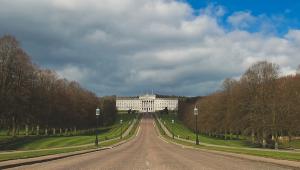A month after the election, parliament is consumed with debate about the major constitutional issues of where power lies between the nations of the UK and the country’s relationship with the European Union. Resolution will alter the democratic landscape, yet for citizens and politicians alike it can be hard to pin down how daily life will change.
How does altering the balance of power among Scottish, Welsh, English and Northern Irish MPs impact on legislation made in Westminster? What are the practical implications of citizens voting to leave the EU – for food safety, immigration or environmental standards? Can governance be improved so our national parliaments become far better at scrutinising EU laws?
The march of devolution offers opportunities to influence governance and accountability locally. Provided, that is, government and parties look at democratic and not just economic devolution.
The Cities and Devolution Bill has been rapidly introduced with the first debate in the House of Lords held on 8 June. Fiscal powers are promised to Manchester and other cities willing to work in combined authorities – if, that is, they accept a mayoral model.
Although all parties agree in principle with loosening Westminster’s grip on power, there are gaping holes in their visions for local democracy. When health spending is devolved to an area the size of Greater Manchester – with nearly three million people – where are the checks and balances to reassure citizens about how spending is decided?
A key challenge is the voting system, built for a two-party era and struggling to cope with modern voters’ diverse views. The Electoral Reform Society has long argued that a more proportional system would enable a fairer reflection of voters’ views in their local council. Currently, Labour has all 96 seats on Manchester city council – having secured 57% of the votes in 2014 – while in the South, Bracknell Forest is 98% controlled by the Tories on 59% of the vote. As devolution takes shape, there is a strong case for a voting system that aids rather than hinders accountability.
In 2012, there were dozens of ‘one-party states’. For example, Wigan had one Tory councillor under first-past-the-post; there would have been 11 under a proportional voting system. This year in Tunbridge Wells, the Conservatives won all the seats up for election on 53% of the vote.
Effective opposition is vital to good governance and accountability. With healthy debate in the council chamber, lax governance becomes much less likely – councillors’ feet are held to the fire. Sadly, 7 May saw the most disproportionate election result in British history.
If devolution is to be sustainable and effective, citizen involvement is crucial. The public must help decide which model of devolution is best. Mayors can be imposed, but if no one votes for them, where is their legitimacy?
This autumn, two constitutional convention pilot studies are due to take place in Hampshire and Yorkshire, giving citizens the chance to share their views on where power should lie locally. These opportunities should be made available to all citizens before the government sets its devolution plans in stone.
So far the debate about English devolution has been largely Treasury driven, fiscally focused and aimed at larger economic centres. The starting point of devolution, however, must be an awareness that it is essentially about bringing power closer to people. Devolution cannot just be economic – it has to be democratic too.











